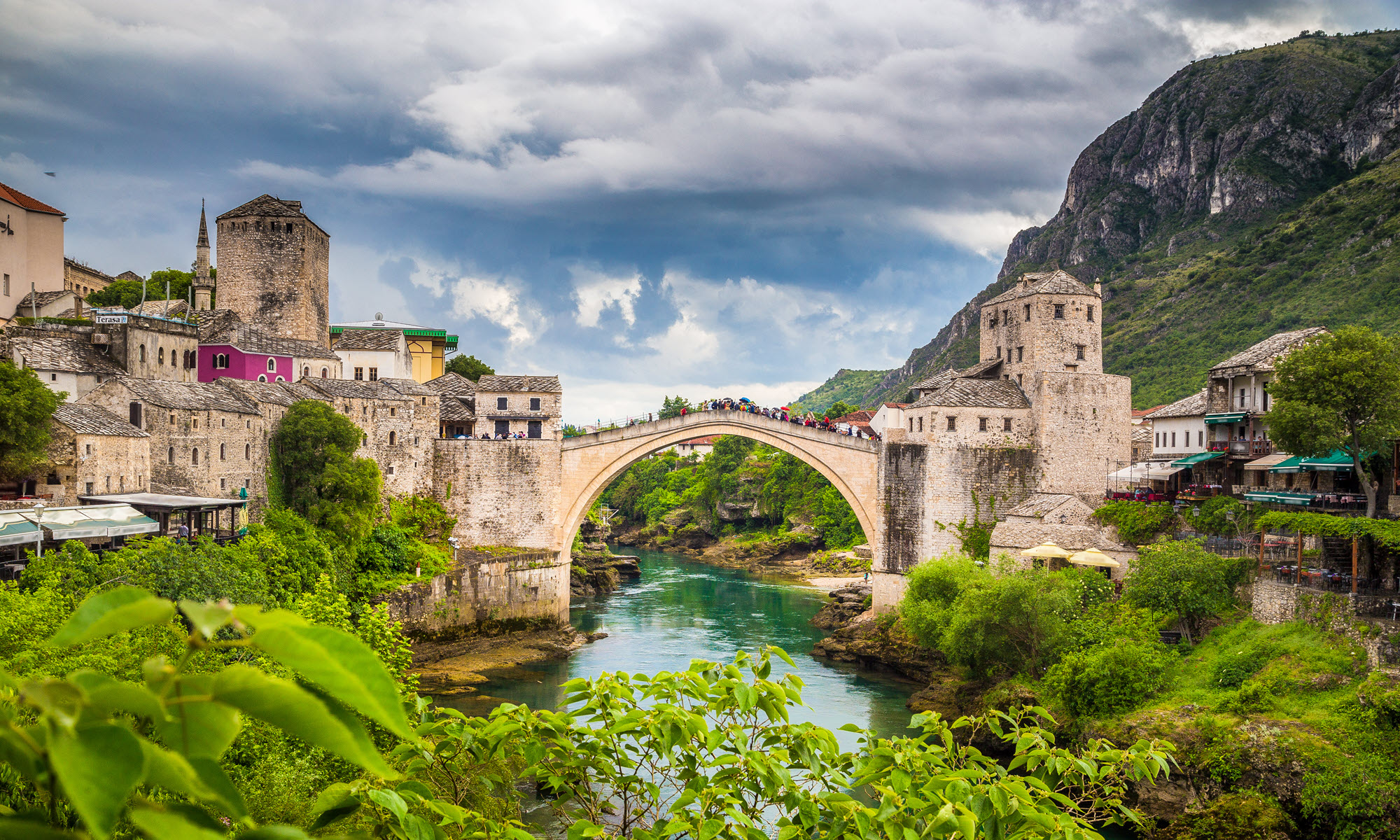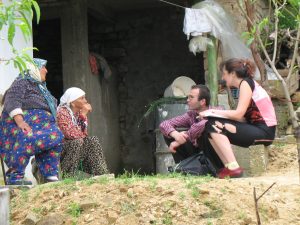(Tijana Angjelkovska, Kristin Kretzschmar)
Tijana Angjelkovska ist aus Tetovo, Mazedonien. Sie studierte Betriebswirtschaftslehre in Tetovo und „Economics for Business Analysis“ in Großbritannien. Nachdem sie am AK Treffen in Berlin teilgenommen hat und uns einen ersten Einblick in die Minderheitenfrage in Mazedonien gab, stimmte sie zu, weitere Fragen in einem Interview zu beantworten. Dieses Interview wird nun in drei Teilen veröffentlicht.
In Teil 2 des Interviews mit Tijana Angjelkovska befassen wir uns mit Minderheiten in Mazedonien. Was sind Minderheiten in Mazedonienen und wie ist die Lage der Roma?
Zur Erinnerung: Teil 1 befasste sich mit dem Community Devedlopment Institute und den sogenannten CICRs. In Teil 3 werden wir über Beziehungen zu Nachbarstaaten und Skopje 2014 sprechen.
_____________
Kristin Kretzschmar: Wenn Du über Minderheiten in Mazedonien sprichst, geht es ja meistens um jene größeren Gruppen wie Albaner und Mazedonier …
Tijana Angjelkovska: Ja, das ist so eine Sache. In Mazedonien sind in der Regel die Albaner die größte Bevölkerungsgruppe. In anderen Teilen sind es die Mazedonier. Beide gelten aber als Minderheit. Alle weiteren Minderheiten – in Mazedonien leben Serben, Roma, Türken, Torbeshi, Vlafs und andere kleinere Ethnien – werden oft beiseite gelassen. In der Regel besteht nur an den größten Gruppen Interesse. Aber die Vertretung der Bedürfnisse und Rechte der Minderheiten ist ein Teil der Menschenrechte. Daher müssen wir sicherstellen, dass jeder die gleichen Rechte hat. Die Vertretung der Bedürfnisse und Probleme der Minderheiten gegenüber der Entscheidungsträger, ist einer der Hauptgründe dafür, dass CIRCs bestehen
KK: Und die kleineren Minderheiten bleiben im Gesetzgebungsprozess gewissermaßen außen vor?
TA: In der Regel werden sie nicht gezwungen, sich zu assimilieren; da aber ihre Rechte und Bedürfnisse als kleine Minderheit nicht zufrieden gestellt werden, assimilieren sie sich oft automatisch in die größeren Gruppen. Besonderes Westmazedonien ist eine problematische Region, wo wir viele Minderheiten haben. Jeder Mensch fühlt sich dort als Minderheit und jeder meint, seine Freiheiten und Rechte seien eingeschränkt. Und auch für mich war es am Anfang recht seltsam mich an die Idee zu gewöhnen, dass ich zur mazedonischen Minderheit in Mazedonien gehöre. Das sind Prozesse, die Zeit brauchen. Mazedonier, sowie Albaner oder Türken oder Serben – sie alle sind echte Minderheiten an einem gewissen Punkt. Aber es ist schwer zu sagen, wer „die wahre Minderheit“ ist. Wenn Du in Westmazedonien schaust sind eben die Mazedonier die Minderheit…
K.K.: Zahlenmäßig…?
TA: – und im Bezug darauf, wie sie im öffentlichen Leben vertreten sind und wie die Region strukturiert ist. Wir haben gewissermaßen eine „Prozent“ Demokratie – es wird versucht mit quantitativen Maßnahmen Fragen der Repräsentation zu befriedigen.
KK: Ok, und wie ist die Lage der Roma in Mazedonien?
TA: Eigentlich, denke ich, dass Roma in Mazedonien die besten Bedingungen in Europa vorfinden. Momentan arbeiten wir an der Umsetzung verschiedener Programme im Rahmen der Roma-Dekade 2005/2015. Ziel sind Verbesserungen der Vertretung der Roma im öffentlichen Leben. Außerdem gibt es neue Gesetzen, beispielsweise Schulpflicht und sie sind durchaus im gesamten System integriert. In der Tat ist Mazedonien das erste Land in der Region mit einem Minister der Roma-Ethnie und hat auch viele Roma in hohen Regierungsstellen vertreten. Mazedonien gibt sich große Mühe, sie auf höheren Ebenen zu integrieren. Es gibt aber immer noch eine Menge, was in den Bereichen Bildung und Integration getan werden muss.
KK: Die Situation in Shutka, die größte Roma-Gemeinschaft in Europa und Teil Skopjes, wird noch immer von sozialen Problemen definiert, nicht wahr?
TA: Suto Orizari ist weltweit die einzige Gemeinde mit einer Roma-Mehrheit und Roma als Amtssprache. Doch wie gesagt es gibt viele Dinge und Bereichen, die sich verbessern müssten, zum Beispiel Arbeitslosigkeit durch unzureichende Bildung. Das Bildungsniveau der Roma-Bevölkerung ist unbefriedigend, und das führt zu Armut und Integrationsproblemen. Auch die nicht regulierte Frage der Staatsbürgerschaft verhindert gleiche Teilhabe am Bildungssystem. Hinzukommen unzureichende Kenntnisse der mazedonischen Sprache.
Behausung ist auch ein Problem. Zum Beispiel gibt es Familien in Suto Orizari, die in winzigen Räumen leben ohne Elektrizität oder Wasser. Und all das führt zu dem größten Problem: das Gesundheitssystem. Das niedrige Bildungsniveau und Lebensstandard auf der einen Seite, und die medizinischen Kosten auf der anderen schließt die Roma-Bevölkerung vom Zugang zur Krankenversicherung und primären medizinischen Leistungen aus.


